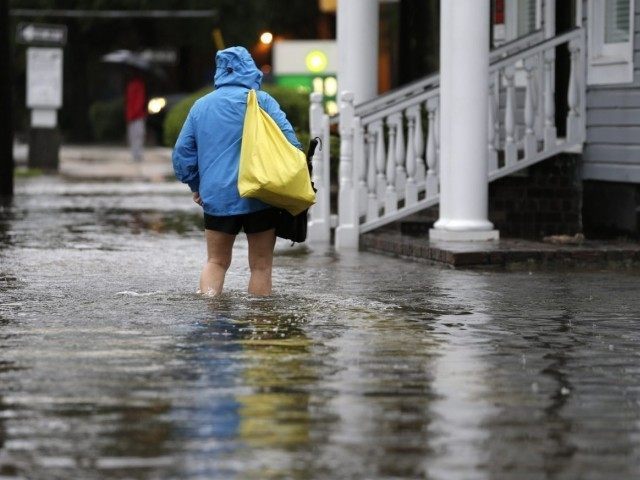Nikki Haley, the governor of South Carolina, has described the floods which have inundated her state as a “thousand year” event.
You can understand her anguish over a disaster which has caused coffins to rise from the grave, swept away trucks and houses, and resulted in nearly a dozen deaths. But that “thousand year” claim needs correction: it simply isn’t true, and it’s the kind of careless rhetoric which only lends fuel to all those alarmist doomsayers who would have us believe that the extreme weather of the last few decades is historically unprecedented.
Paul Homewood has the details.
Yes, it’s true that for Charleston — which bore the brunt of the precipitation — this was a record-breaking amount of rainfall. The 351 mm recorded in downtown Charleston is the highest three day total since records began in 1870.
Still, that’s much closer to being a “hundred year” event, rather than a “thousand year” one. And besides, Haley was talking about the “low country” generally, not Charleston in particular. The fact is that there are plenty of areas nearby which have experienced as great or even greater precipitation over the years.
At Georgetown, in the 1999 storm, they had the same amount of rain in two days as Charleston just did in three. It was even worse that year in Myrtle Beach, which recorded 14.8 inches in a single day.
And as extreme weather events go, the recent flooding in South Carolina had nothing on the horrors of the flood which once ravaged North Carolina, when two Category 4 hurricanes converged almost simultaneously over the state, dropping 13 inches of rain in one 24-hour period and causing the Catawba River to rise 47 feet above flood stage. Every bridge but one across the Catawba was washed out; Lake Wylie dam was destroyed, and all rail, telephone, and telegraph connections were severed.
You can read the full story here.
But you’re unlikely to hear this extreme weather event mentioned much in the context of North Carolina’s southern neighbor. That’s because it happened back in 1916, before “global warming” was invented.

COMMENTS
Please let us know if you're having issues with commenting.